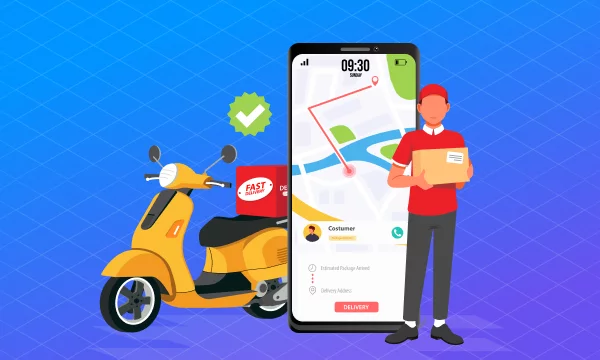Managing a database for restaurant management software, food delivery software, and custom healthcare software is crucial for the smooth operation of these applications. Each of these domains has its unique data management requirements, and the database design should align with the specific needs of the software. In this 800-word description, we will explore how to manage databases for these three types of software systems.
Restaurant Management Software Development Company:
A restaurant management software database is the backbone of a restaurant’s digital operations. It needs to efficiently handle various aspects of the restaurant’s functions, including menu management, order processing, customer data, inventory control, and staff scheduling. Here are some key considerations for managing the database of such software:
-
Data Structure: The database should be structured to accommodate different types of data. For instance, it should have tables for menus, ingredients, customers, orders, and employee records.
-
Performance: Given the fast-paced environment of restaurants, database performance is crucial. Optimize queries and indexes to ensure that orders are processed quickly and that customers don’t experience delays.
-
Data Security: Restaurants handle sensitive customer information, so security is paramount. Implement encryption, authentication, and authorization to protect customer data from breaches.
-
Scalability: As the restaurant grows, the database should be able to scale with it. This involves using scalable database systems and cloud solutions to handle increased data volumes and traffic.
Backups and Redundancy: Regular backups are essential to prevent data loss. Implement redundancy and failover mechanisms to ensure the system remains operational in case of hardware failures.
Food delivery software databases must efficiently manage orders, delivery tracking, and restaurant listings. Here are some considerations for managing the database for food delivery software:
-
Real-Time Updates: Ensure the database can handle real-time updates from multiple sources. This is vital for tracking the status of orders and driver locations.
-
Geospatial Data: Incorporate geospatial data to track the locations of restaurants, delivery drivers, and customers. Use databases that support geospatial queries for efficient route optimization.
-
User Profiles: Manage user profiles, including preferences, order history, and payment information securely. Implement strong encryption and compliance with payment industry standards.
-
Order History: Keep a comprehensive history of orders, as this data is valuable for both customers and restaurants. Archived data may be necessary for analytics and customer support.
-
Integration: Ensure that the database can seamlessly integrate with restaurant systems, mobile apps, and third-party services for payment processing and mapping services.
Custom Healthcare Solution Software:
Custom healthcare software databases are vital for managing patient records, appointments, billing, and medical data. They require a high level of data security and compliance with healthcare regulations. Here are some considerations for managing the database for custom healthcare software:
-
Patient Records: Implement a robust database structure to manage patient records securely. This includes personal information, medical history, treatment plans, and billing data.
-
HIPAA Compliance: Adhere to HIPAA regulations to protect patient confidentiality. Encrypt data at rest and in transit, and implement access controls to restrict data access to authorized personnel.
-
Audit Trails: Maintain detailed audit trails to track who accesses patient records and what changes are made. This ensures transparency and compliance with healthcare regulations.
-
Interoperability: Healthcare software often needs to integrate with other healthcare systems and share data with different providers. Ensure the database can support interoperability standards like HL7.
-
Backup and Disaster Recovery: Implement stringent backup and disaster recovery procedures to ensure that patient data is never lost, even in the face of hardware failures or natural disasters.
-
Data Analytics: Healthcare software often benefits from data analytics for research and improved patient care. Design the database wiHow to process by database Management, data visualization, data analyticsth analytics in mind, using appropriate data warehousing and reporting tools.
In summary, managing databases for restaurant management software, food delivery software, and custom healthcare software requires careful consideration of data structure, performance, security, scalability, and compliance. These software systems have distinct requirements, but all demand robust database management to ensure the smooth and secure operation of the applications, as well as compliance with relevant regulations. Properly managed databases are the foundation of reliable and efficient software systems in these domains.

